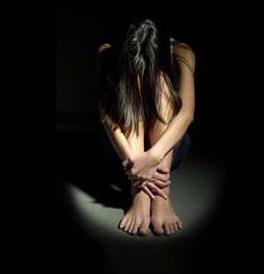
Seek help If depressed, it is a condition that can afflict anyone.
WE ALL have moments of happiness and sadness. It is normal to feel down as you encounter challenges in daily routine and with the pressure of study, work, family and relationship commitments.
However, if the "down" times are long lasting or interfere with your ability to function at home, work or school, psychologists say then you may be suffering from depression.
According to a clinical psychologist at The Anxiety and Trauma Clinic in Johannesburg, Elizabeth Cambanis, "depression is a disorder of the body as well as the mind".
"It is now also recognised that depression can, in fact, present itself as bodily pain. The pain is often vague and unexplained by injury.
"It may show up as headache, abdominal pain or musculo-skeletal pains in the neck, lower back or joints," said Cambanis.
Though it is one of the most treatable diseases, it is estimated that 20% of the population may suffer from major depression at some stage of their lives.
Cambanis said depression was caused by a combination of factors, including people's genetics, brain chemistry and stress. People of all sexes, races, ages, classes and cultures are affected by depression.
"People with a family history of depression may be more likely to develop it than those whose families do not have the illness," said Cambanis.
"Also, people with depression have different brain chemistry than those without the illness."
Loss of a loved one, a difficult relationship, financial problems, legal worries or any stressful situation might trigger depression, added Cambanis.
Research also shows that depression raises the risk of heart disease and accelerates conditions such osteoporosis - an age-related disorder that reduces the quantity of bone or skeletal tissue.
If you have low mood or "the blues" for more than two weeks, Cambanis advised seeking help.
"If you have suicidal thoughts or plans, it is vital that you seek help immediately."
Assistance at hand for those in need
THE South African Depression and Anxiety Group (Sadag) has a rural project aimed at training home-based HIV/Aids workers by educating them about depression and anxiety.
THE SYMPTOMS OF DEPRESSION
Feeling sad or empty.
Feeling hopeless, irritable, anxious or guilty.
Loss of interest in favourite activities.
Loss of interest in sex.
Feeling very tired.
Not being able to concentrate or remember details.
Not being able to sleep, or sleeping too much.
Overeating or not wanting to eat at all.
Thoughts of suicide or suicide attempts.
Treatment of depression includes both medication and psychotherapy. All public health care facilities should have information and counsellors to help with depression.
TIPS TO HELP YOU COPE WITH MENTAL ILLNESS:
See professional health practitioner immediately.
Talk to someone about how you feel.
Don't be self-critical.
Avoid making big decisions.
Exercise.
Eat a healthy diet.
Try to do activities that relax you, such as meditation.
Read a book.
Avoid bad habits.
